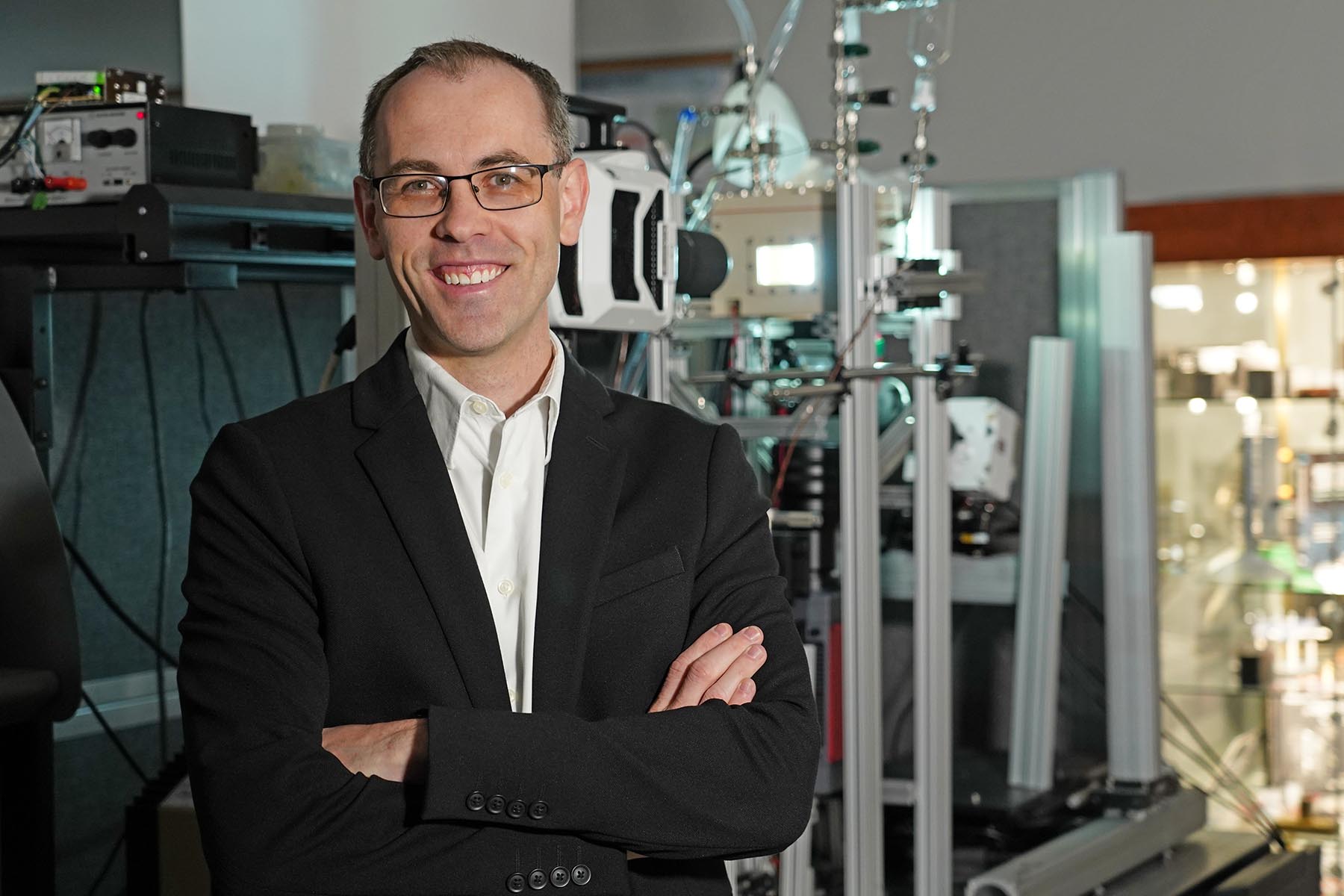$7.3 million award to create new measurements and models for boiling heat transfer using machine learning

This 5-year award from the Office of Naval Research is part of the Multidisciplinary University Research Initiative (MURI) program, which involves teams of researchers investigating high priority topics and opportunities that intersect more than one traditional technical discipline — stimulating innovations, accelerating research progress, and expediting transition of results into real-world applications.
“We have been working on modeling this phase-change behavior for many years using mechanistic models,” said Justin A. Weibel, professor of mechanical engineering and principal investigator of the project. “But with recent advances in computer vision and machine learning, we are now on the threshold of providing a more generalized modeling ‘language’ to better predict two-phase flow and heat transfer.”
The METHODS (Machine learning Enabled Two-pHase flow metrologies, models, and Optimized DesignS) project is a multidisciplinary convergence of liquid-vapor phase change transport modeling domain knowledge, advanced fluid physics metrology, and emerging physics-informed machine learning and computer vision techniques. “We want to leverage these machine-learning approaches to enhance fundamental understanding and develop an end-to-end framework to predict phase change during two-phase flows,” Weibel said.
The new project has a website: https://www.purdue.edu/research/methodsmuri/home

Weibel is the current director of the Cooling Technologies Research Center (CTRC), a Purdue-based National Science Foundation Industry/University Cooperative Research Center that works with industry partners on high-performance heat removal from compact spaces. Weibel’s research group explores advanced electronics cooling and packaging technologies and phase-change transport phenomena. He has been a key contributor to the development of transformative cooling technologies supported by the DARPA TGP, DARPA ICECool, NAVSEA NEEC, ONR NEPTUNE, SRC CHIRP, ARPA-E ASCEND, and ARPA-E COOLERCHIPS programs, in addition to numerous industry-sponsored research projects that transition these technologies to practice.
But with such a big problem, you need a big team. That’s why Weibel has partnered with a multidisciplinary group of colleagues to form the METHODS team, including Fengqing Zhu of the Elmore Family School of Electrical and Computer Engineering at Purdue University; Manoochehr Koochesfahani and Minami Yoda of Michigan State; George Karniadakis of Brown University; Chirag Kharangate of Case Western Reserve; and Satish Kumar of Georgia Tech; as well as a full roster of graduate researchers and postdocs.
“Our Purdue Computes initiative seeks to apply AI to real world challenges, and this project is a perfect example of that vision,” said Weibel. “These phase-change processes will be leveraged in cooling high-power semiconductors of the future — and it’s fair to say that Purdue is leading the charge in that field as well. All of our team members are thrilled to forge this new collaboration, owing to support from the Office of Naval Research, on what we envision will be groundbreaking fundamental science.”
This work is supported by the Office of Naval Research under the Multidisciplinary University Research Initiatives (MURI) Grant Award N000142412545.
Source: Justin Weibel, jaweibel@purdue.edu
METHODS website: https://www.purdue.edu/research/methodsmuri
